Why go to Africa?
NTU student writes about his experience as an intern in Nigeria
By Srihari Rangan
Why go to Africa? This is a question I was often asked after spending two months there as an intern over the summer. Most of my friends found it ‘really cool’ and were curious to find out what I did over there. Africa, after all, does not get a great press. Does it? Other than wildlife safari the popular imagination of Africa is one of drought, conflict and famine. But there is much more to it. I want to set the record straight. Africa is an extremely diverse place. A one size fits all description simply is inaccurate and does not do it justice. Here is a snippet of my experience in Nigeria – the most populous country in Africa.
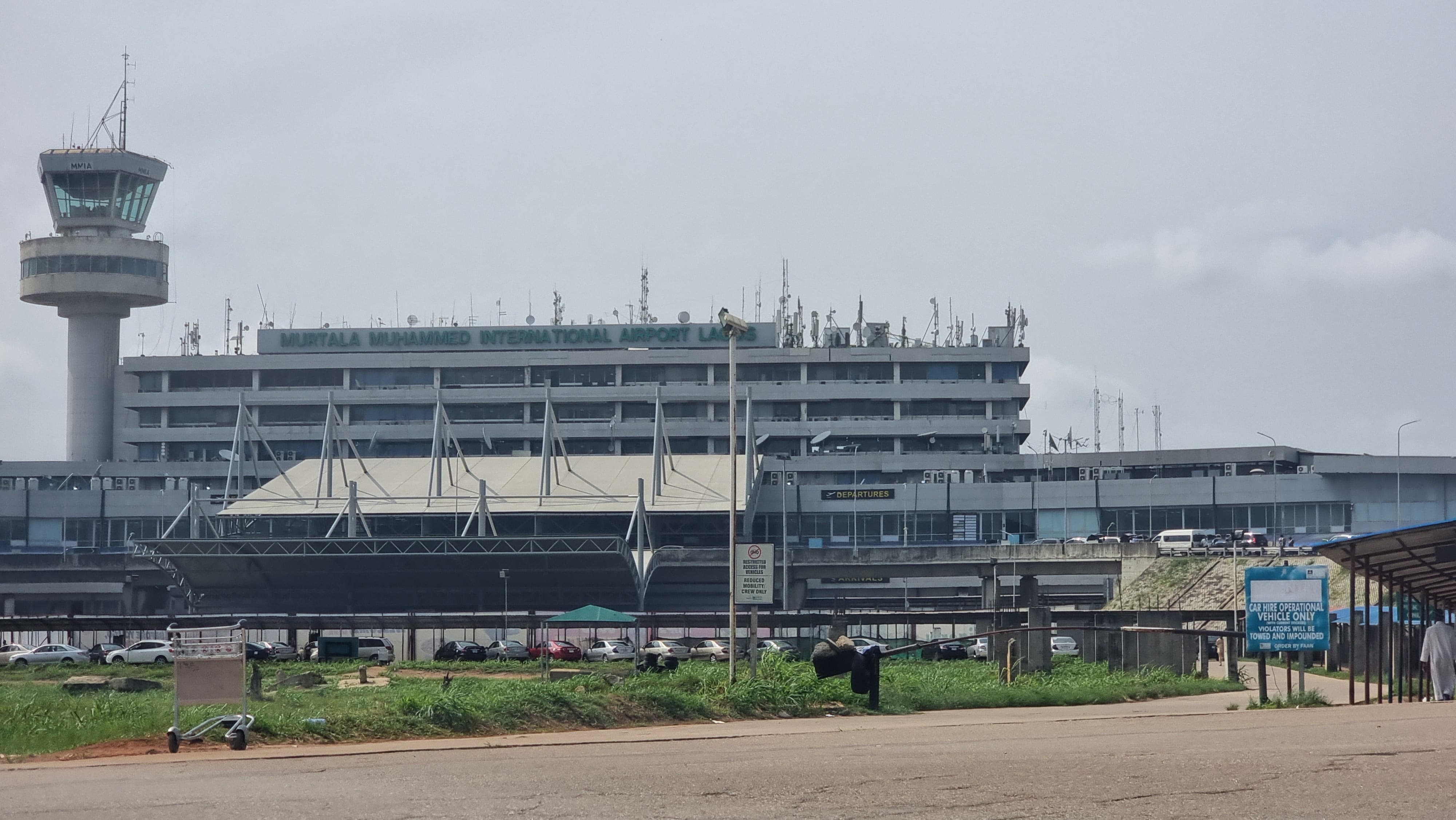
Arrival into adventure
It began the moment I landed at the Murtala Mohammed International Airport (MMIA)in Lagos – named after the assassinated former President of Nigeria. The difference between Singapore Changi International and MMIA could not be starker. MMIA is a modern airport but somewhat worn out. You land at MMIA after a dreary 20hrs of flight, only to be met with a Nigerian immigration bureaucracy out to make your exit difficult. As you make your way towards the immigration counter, you see potbellied police officers directing visitors with their baton. Their stern glares is supposed to make you feel safe – or intimidate potential wrongdoers.
The average Boeing 787-9 plane can carry about 250 passengers. But I suppose the interior designers for MMIA thought that it was acceptable to have just one mini escalator lead down into the immigration counters. So upon disembarking, you are already standing in a long queue where how fast it moves depends solely on the whims of the police officer regulating it. Welcome to Nigeria.
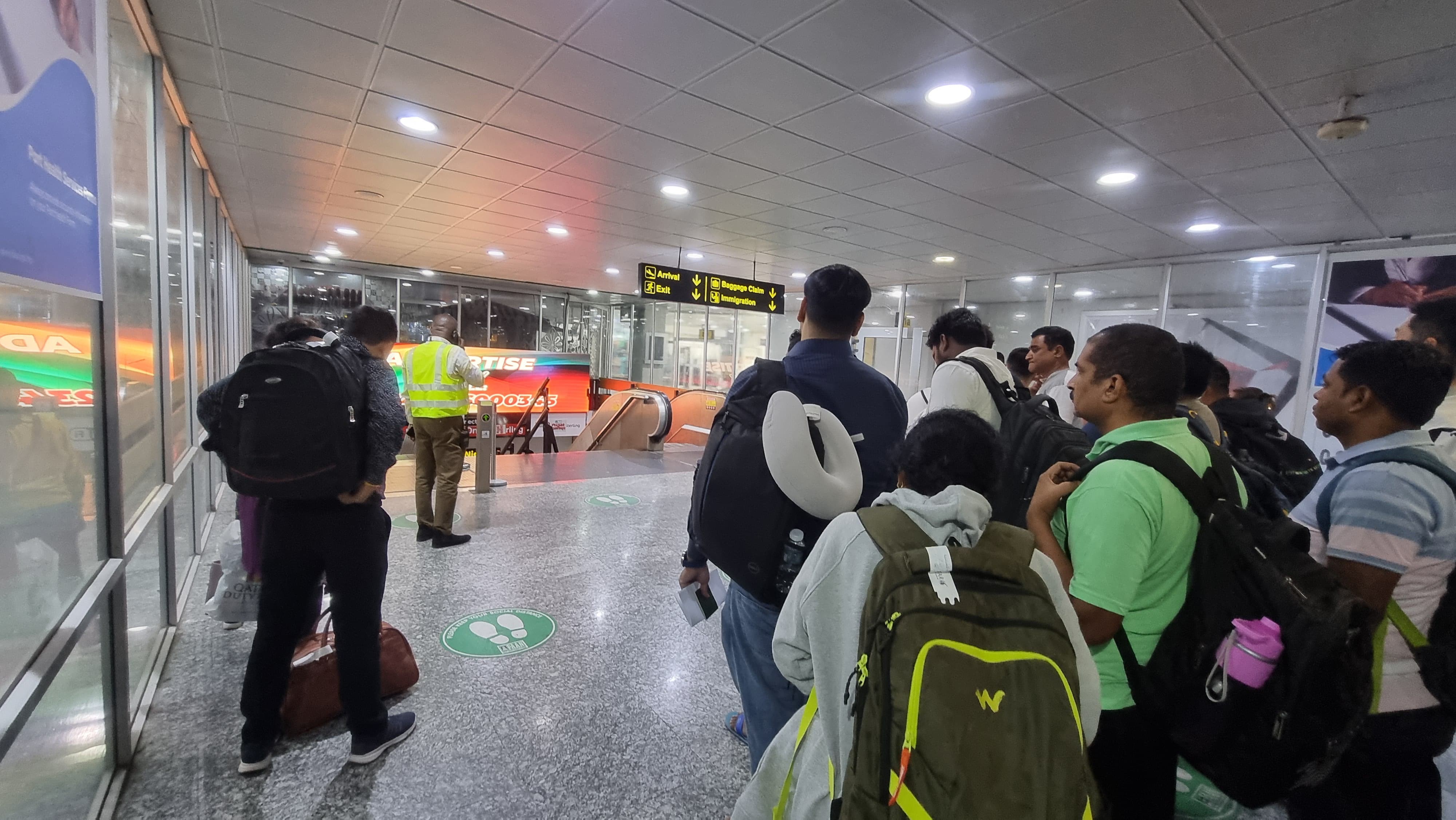 Elevator in question.
Elevator in question.
When you finally do get to passport control, that is where the real fun starts. Foreigners entering Nigeria are almost always expats and need to visa to enter the country. I was no different. Thus begins a two hour wait in a cramped room with chaos on full display. You have two choices here: get annoyed or entertain yourself with whatever was happening around you. I chose the latter.
I took a brief look around and saw where these other passengers were from. Most of them were from either from India or China. Historically, Nigeria has had closer economic links with the West – starting first, with trade in ivory and slaves followed by oil. It was a British colony before gaining independence in 1960. But today it is Asia that counts. Nigeria's top export destination is India (12.6% of total Nigerian exports), and China is top source of imports China (22.7% of total Nigerian imports). Singapore briefly trumped China to become the biggest exporter to Nigeria in the first quarter of 2024.
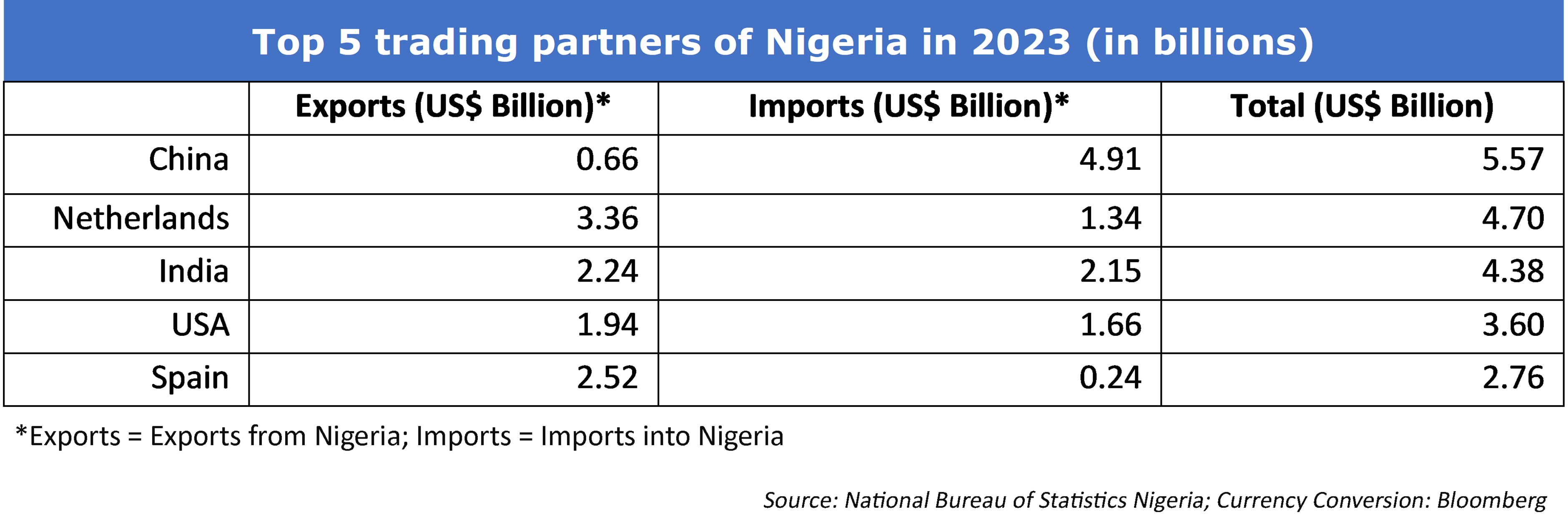
You finally get to exit the airport once you are done with your visa, baggage and everything else that Nigerian immigration wants to throw at you. The drive from the airport to my apartment was eye-opening as this was the first time I got to see Lagos in all its glory. Third Mainland Bridge, Lagos Lagoon and Makoko are all some of the major highlights along this drive. Ishola, the driver who came to pick me up was the first person with whom I struck a conversation. He was to become my friend and guide. We would go on to meet a few more times during my stay there, and safe to say we had a few adventures.
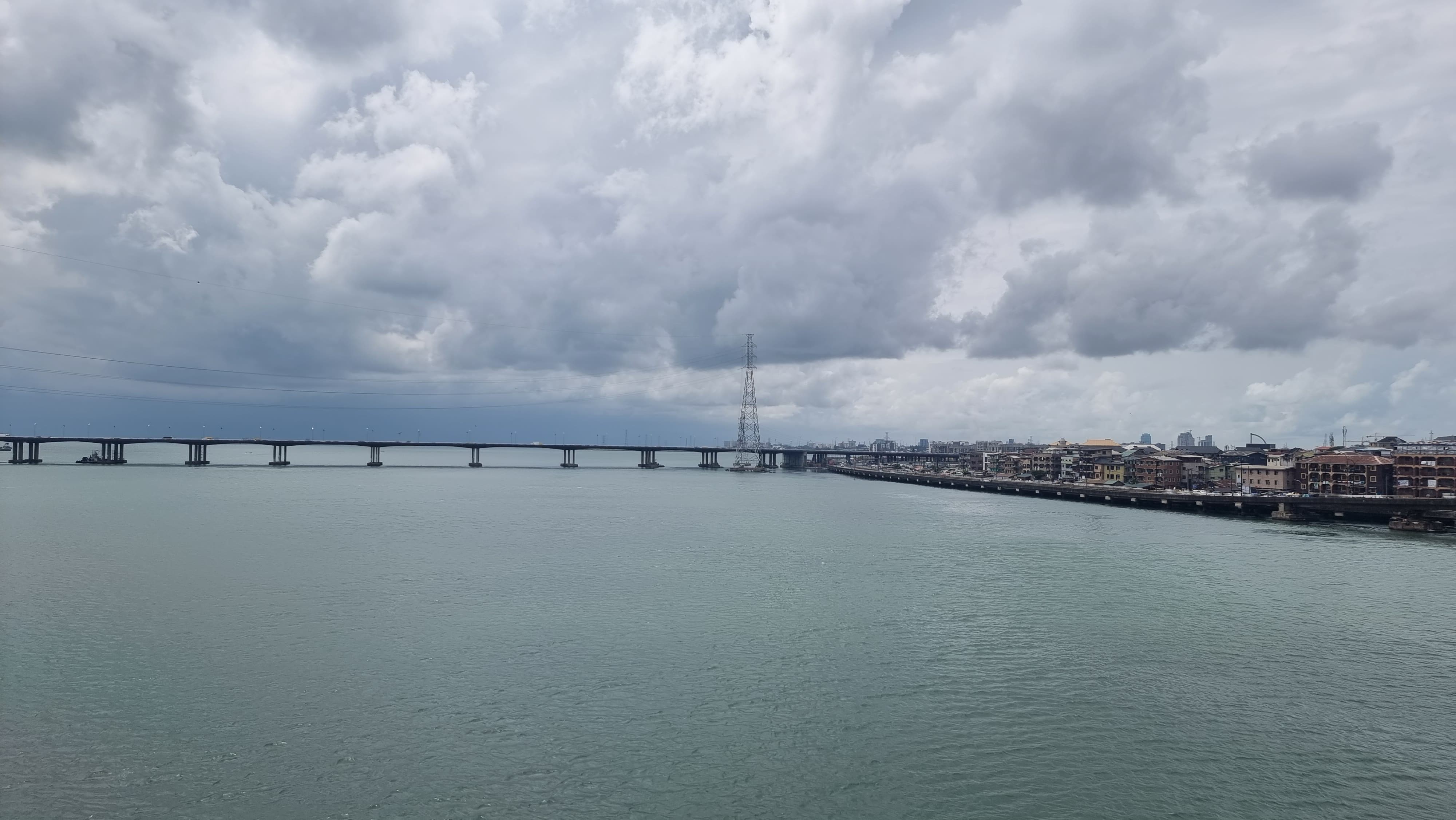 Third mainland bridge and Lagos Lagoon.
Third mainland bridge and Lagos Lagoon.
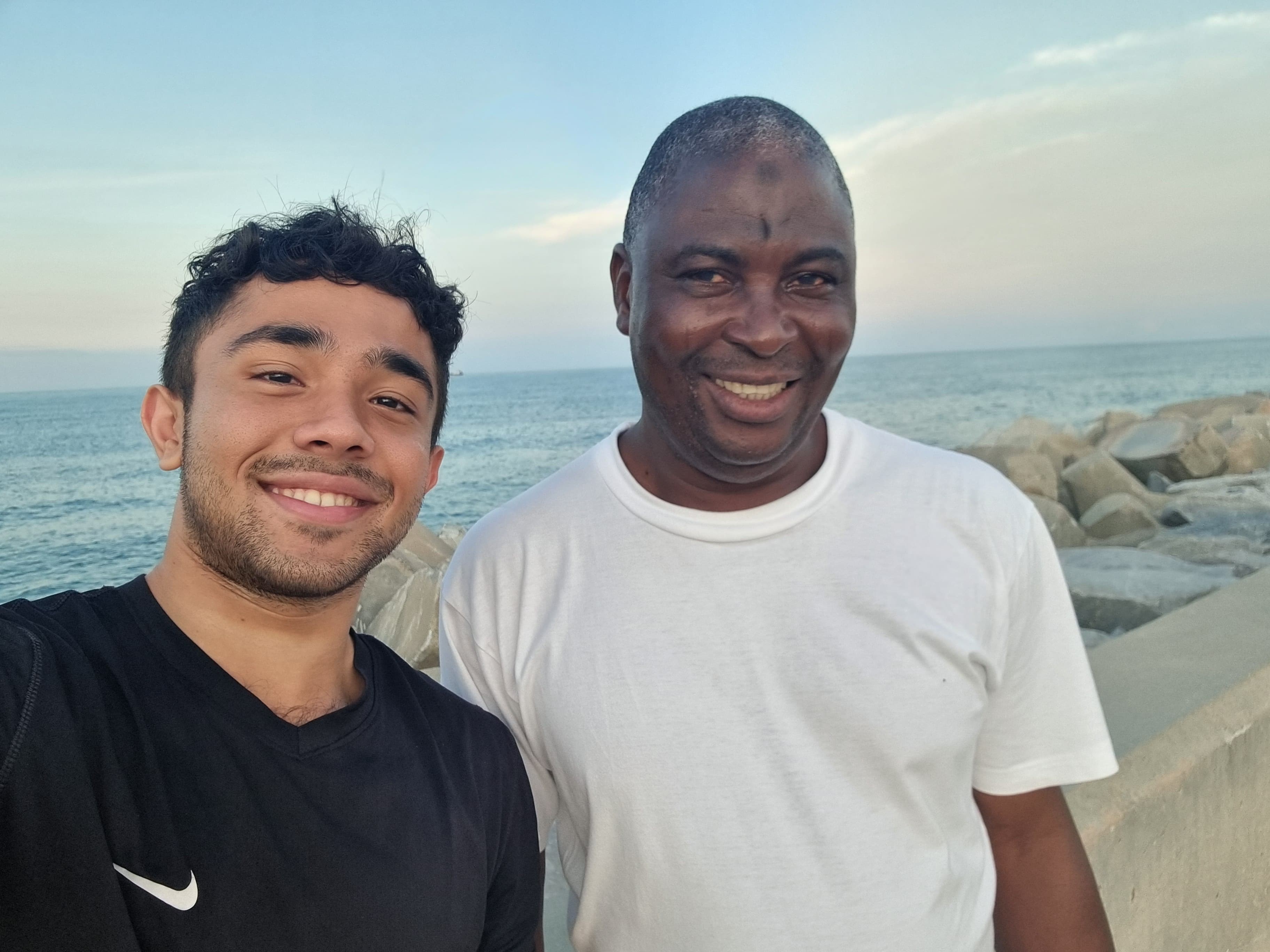 Mr Ishola, with whom I spent a lot of time.
Mr Ishola, with whom I spent a lot of time.
The Internship
But what was I doing in Nigeria? I was there as an intern working for the Singapore-based food-to-infrastructure conglomerate – the Tolaram Group. Although headquartered in Singapore it has built its business in Nigeria. Although most recognised for its dominance in the local FMCG sector the most ambitious project undertaken by the group is the development of the country’s first deep seaport – Lekki. The port addressed the inefficiencies of older ports like Apapa, and reliance on transshipment through third countries. The new deep seaport can not only handle larger vessels but also plays a critical role in bolstering Nigeria’s import-dependent economy. Along this port, Tolaram has also established the Lagos Free Zone (LFZ) – a special economic zone where investors can avail 30% cuts on taxes and reliable support infrastructure such as roads, electricity, and warehousing. I was assigned to the LFZ. Singapore has an excellent reputation in Nigeria. Every time told Nigerians where I was, I received nothing but admiration.
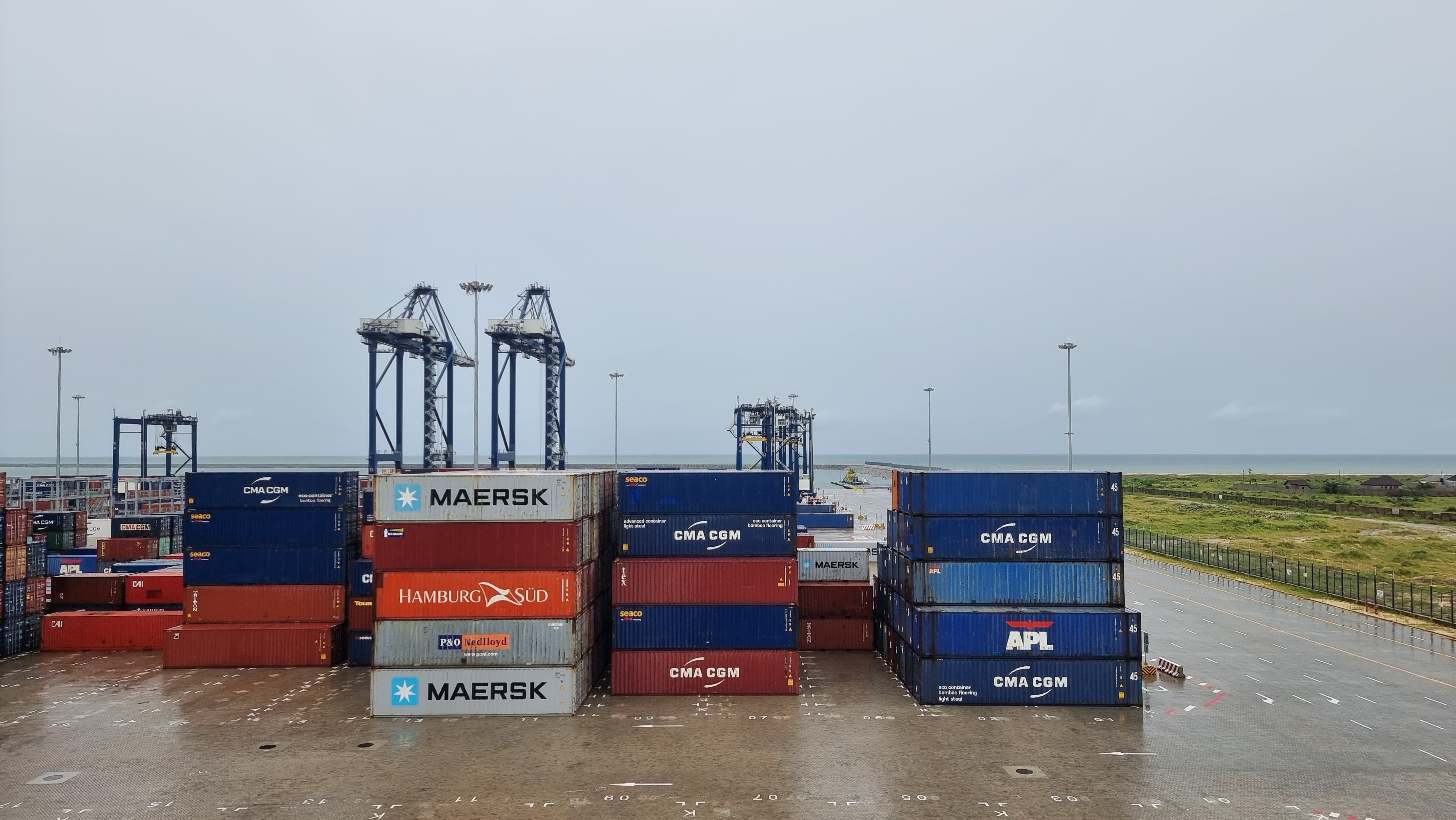 Nigeria’s first deep sea port. It was inspiring to be a part of projects as influential as these.
Nigeria’s first deep sea port. It was inspiring to be a part of projects as influential as these.
If you are a student intern in Africa, chances are the firm that is hiring you sees some potential in you and will not be pushing papers. You will be tasked with doing actual, impactful work. During my time in Nigeria, I split my days between the Tolaram downtown office in Lagos and the LFZ site in Lekki – a 1.30 hrs car ride from the city centre. But the commute can take anywhere from up to seven hours - as I discovered one day when the wedding of a celebrity ‘singer’ caused a massive traffic jam. My days were packed with writing reports, making slides, attending meetings, and even delivering a presentation to a German energy company. I also met the most important man in Lagos State, the Governor himself, so yes, in Africa, you will get a lot of client-facing time and hands-on experience, making your role incredibly rewarding and fruitful.
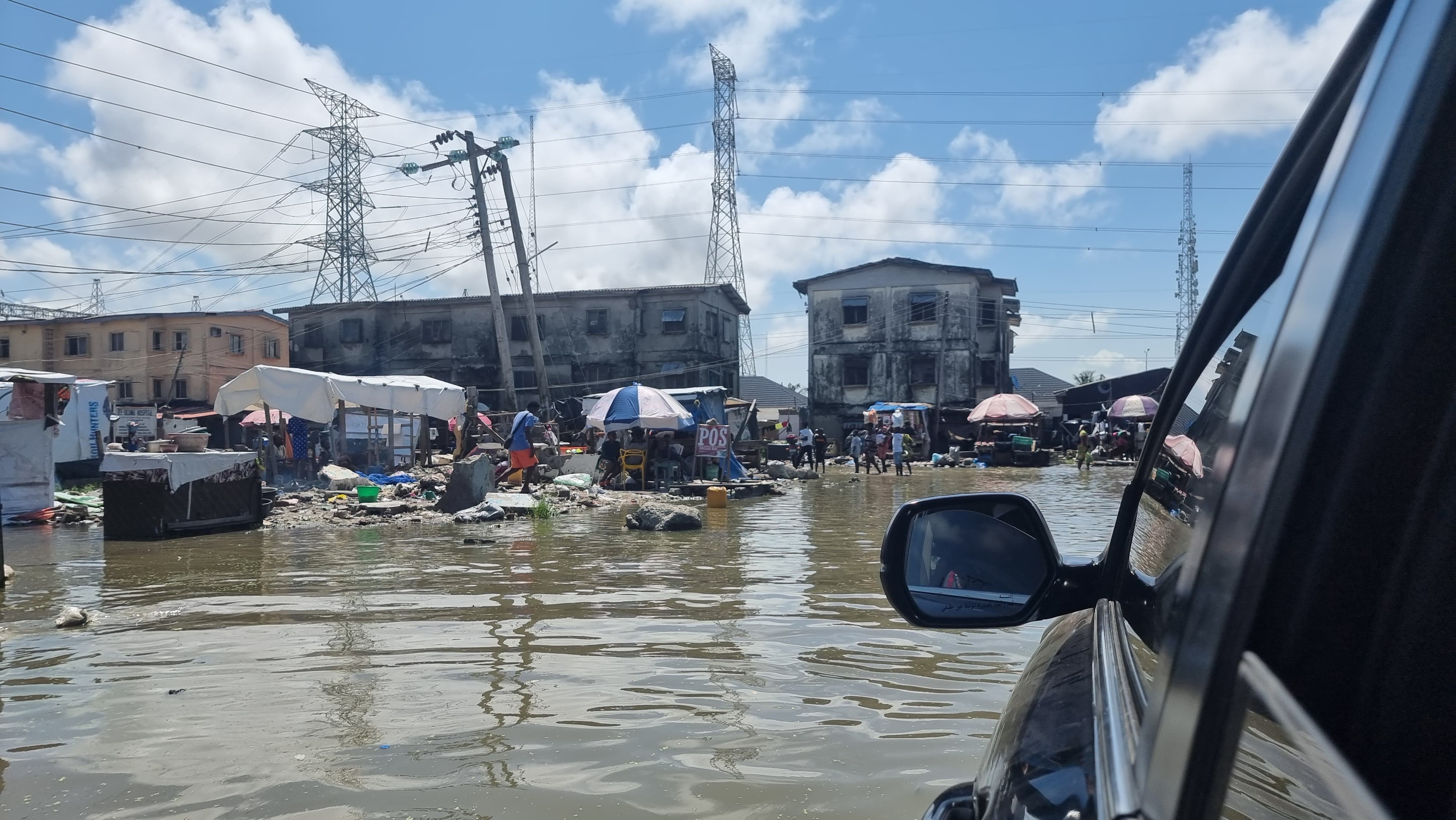 Where’s the road?!
Where’s the road?!
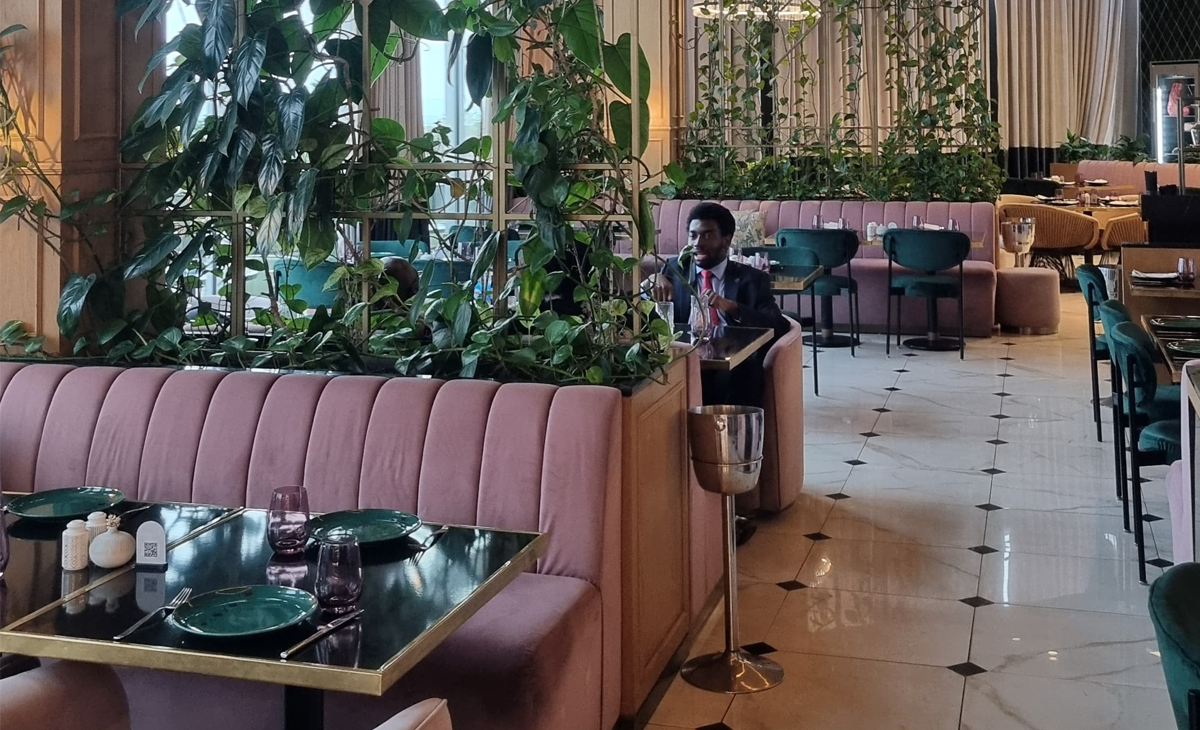 Living the high life in Lagos.
Living the high life in Lagos.
As Singaporeans we tend to be more conservative and stick with ‘our own kind’ overseas. But I decided to break that habit. There is much to be learnt interacting with people from diverse cultural and economic backgrounds. I also believe, there is value for personal growth to be found in frontier destinations like West Africa.
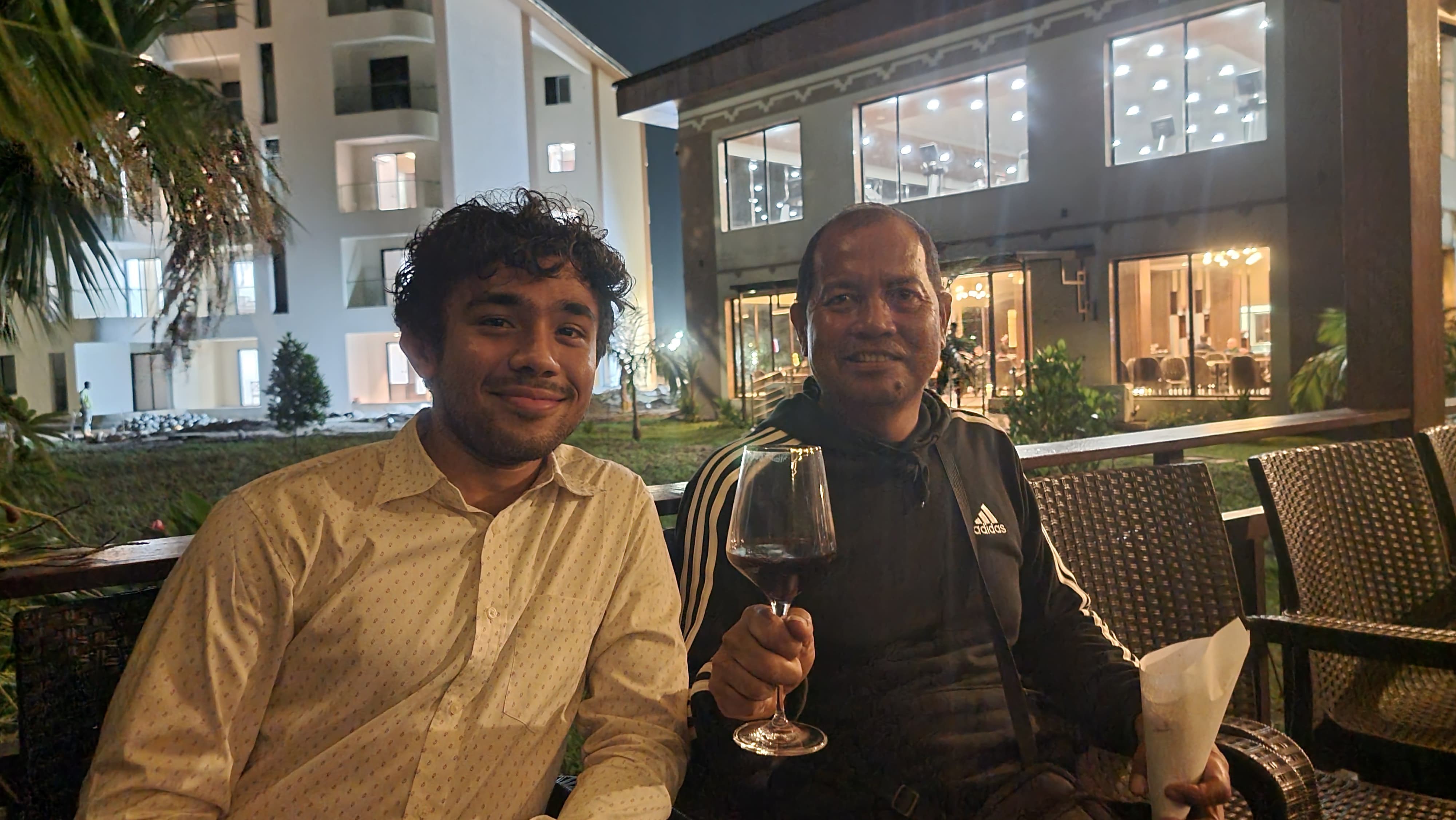 With the company’s gardener, who once served for the King of Brunei.
With the company’s gardener, who once served for the King of Brunei.
Outside the office
I do not want to stay confined to the office. There was an entire world out there beyond the plush ivory towers of corporate offices in Nigeria. To truly understand a place like Nigeria you have to step out of your comfort zone and experience it. And that is exactly what I decided to do. I hit the road. Many colleagues tried to dissuade me. This was Nigeria. Public spaces are not exactly ‘safe’ out here. But I was not going to let fear hold me back. I explored Lagos in ways few expats do. Not even some of my local Nigerian colleagues, who can be considered to be elites, at least by local standards. I ventured to places like Makoko - the largest floating slum in the world. And yes, I vlogged everything and put it up on YouTube. Click this link.
One of the places I visited was Dodan Barracks - a military compound situated in the heart of Lagos. I choose Dodan Barracks because it is a display of Nigeria’s unity in diversity. While the north is scarred by conflict between Christians and Muslims, the barracks present a striking contrast. Here, a mosque and a church stand side by side in perfect harmony. There is very little animosity between Christians and Muslims here. It was a Sunday when I decided to explore the barracks and attended a Sunday mass at a local church. I had a strong desire to experience a religious event because religion plays such a central role in Nigerian society.
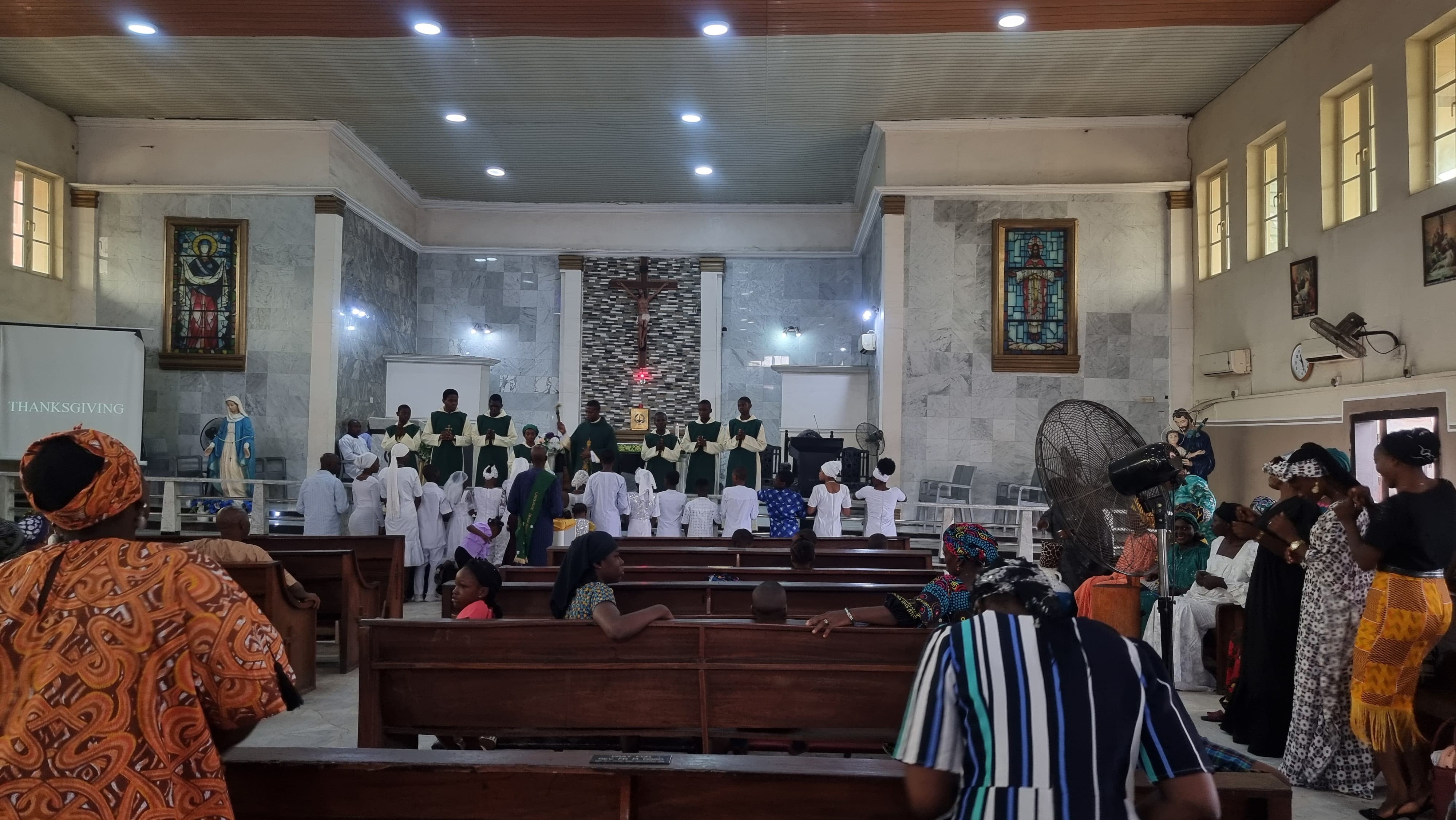 Sunday Mass service.
Sunday Mass service.
The moment I stepped into the church I became the centre of attention. No surprise. Nigerians are unfamiliar to seeing foreigners mingling in their everyday local life. Armed with a vlogging camera, I clearly stood out as one. I am also unfamiliar with Christian traditions and customs. I stuck out like a sore thumb amidst the congregation. Yet, I was treated with warmth and curiosity. They welcomed me to the congregation. Their friendliness was not superficial or driven by any ulterior motives. It was sincere and heartfelt. What touched me the most was when several members invited me to return for mass the following week. They were not trying to proselytize. I could feel they truly meant it. It showed me a side of Nigeria that goes beyond headlines, underlining genuine human connections and a strong sense of community.
Coming to Nigeria was not an easy decision. My mother was not exactly enthusiastic about the idea. Initially, I was also a bit anxious as well. But Nigerians made me feel at home. Yes, the internship itself was very challenging. I was held to a high standard, and I made sure to deliver quality work consistently. But despite the demands I never felt alone or over stressed. My Nigerian colleagues and the people I met outside of work interacted with me like I was an old friend. The key word here is that I felt like I belonged. I am not sure if any other place would make you feel like you belong as fast as Nigeria did.
Of course, I understand that my experience may not be shared everyone. As an extrovert, I found it easy to fit in. But someone else might find it more challenging. However, I would still encourage anyone to give Nigeria, and other "unknown" places a chance. People in these societies are eager to talk to foreigners and learn about new perspectives and ideas. In return you will get to learn something new as well. It is a fantastic opportunity to mingle, socialise, make friends, and exchange ideas. These are the frontier markets of the world where change is coming thick and fast. Experience it. It will contribute significantly to your personal and professional development, and you have a fantastic story to tell your grandchildren many years later.
Nigeria is a country where it is difficult to feel like an outsider in their country. One day you start as an Oyibo (foreigner) like me, but soon enough you will end up as a true Naija (local) man.
Srihari Rangan is 2nd year undergrad student at the School of Humanities and Social Sciences at NTU.















/enri-thumbnails/careeropportunities1f0caf1c-a12d-479c-be7c-3c04e085c617.tmb-mega-menu.jpg?Culture=en&sfvrsn=d7261e3b_1)

/cradle-thumbnails/research-capabilities1516d0ba63aa44f0b4ee77a8c05263b2.tmb-mega-menu.jpg?Culture=en&sfvrsn=1bc94f8_1)







